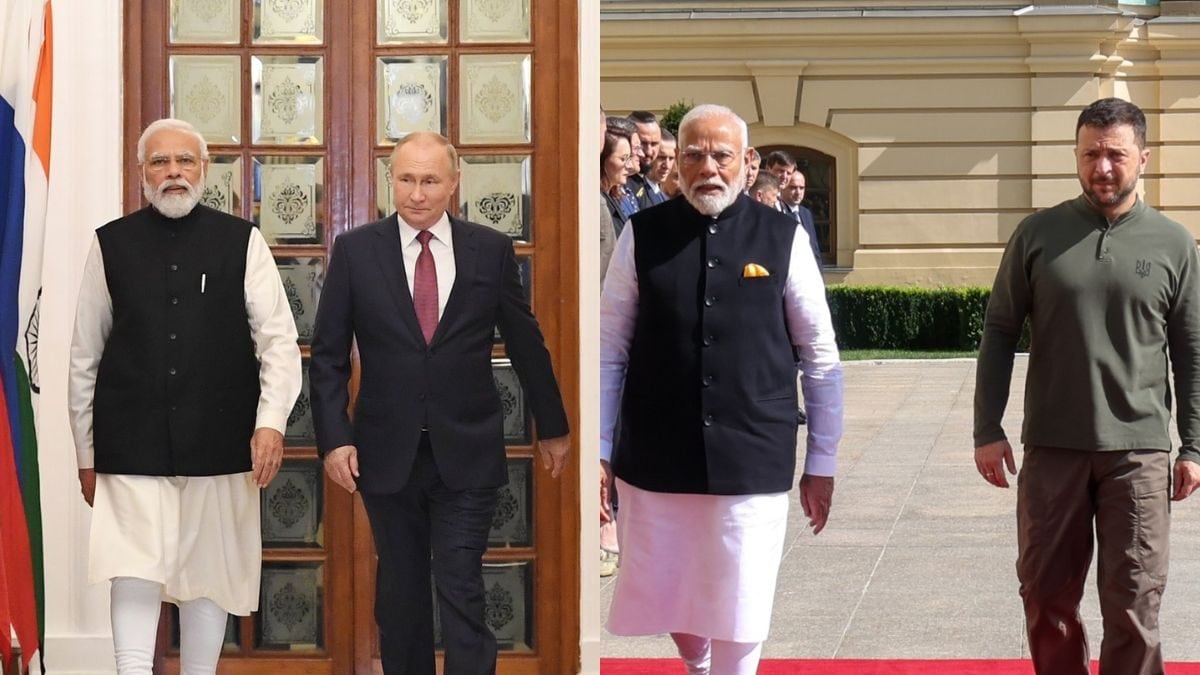India’s engagement in the Russia-Ukraine conflict has evolved from neutrality to a potential mediator. Recognizing the dire humanitarian consequences and the global ramifications of the protracted war, India is actively pursuing a peaceful resolution. This article explores India’s evolving role in the conflict, focusing on the upcoming visit of National Security Advisor (NSA) Ajit Doval to Moscow and his key meetings with counterparts from Russia, China, and other BRICS nations.
India’s Growing Role in Peace Efforts
India’s active pursuit of peace in the Russia-Ukraine conflict stems from a deep understanding of the human cost of war and the imperative for global stability. While India has maintained a neutral stance on the conflict, it has consistently advocated for diplomacy and peaceful resolution.
A Multi-Layered Approach to Peace
India’s approach to resolving the conflict involves a multi-layered strategy encompassing:
- Diplomatic engagement: India has been actively engaged in diplomatic discussions with both Russia and Ukraine, underscoring its commitment to a peaceful resolution.
- Humanitarian aid: India has provided significant humanitarian assistance to Ukraine, demonstrating its commitment to alleviating suffering.
- International platforms: India actively participates in multilateral discussions, seeking to build consensus on a path to peace through various forums, such as the UN and BRICS.
The Significance of Doval’s Visit
NSA Ajit Doval’s visit to Moscow for the BRICS NSA meeting signifies a key moment in India’s engagement in the conflict. His meeting with his Chinese counterpart Wang Yi and other BRICS representatives will focus on fostering understanding and exploring pathways towards a peaceful solution.
Key Meetings and Discussions
Doval’s visit is expected to be crucial for establishing a framework for peace negotiations. It presents a significant opportunity for India to:
Building Common Ground with Russia
Doval’s meeting with Russian officials will be vital in assessing Russia’s willingness to engage in constructive dialogue and exploring common ground for peace. The dialogue will be crucial in bridging the gap between conflicting positions and fostering a shared understanding of the path forward.
Collaborating with China
Doval’s meeting with his Chinese counterpart is significant given China’s close ties with Russia. The discussions will likely focus on finding shared solutions to the conflict, recognizing the impact it has on global stability and regional security.
Navigating BRICS Relations
The BRICS NSA meeting provides a platform for India to engage with other BRICS nations and collectively address the multifaceted implications of the conflict. The discussions will explore common challenges and opportunities, promoting collaboration and a unified approach to finding a peaceful resolution.
Balancing Interests and Promoting Peace
India’s commitment to finding a peaceful solution is not without its challenges. It must carefully navigate its own strategic interests while promoting a resolution that prioritizes peace.
Strategic Interests and the Quest for Peace
India’s strategic relationship with Russia remains a significant factor in its approach to the conflict. Its reliance on Russia for defense equipment and energy supplies adds a layer of complexity. India must balance its interests in maintaining these ties while actively pursuing peace.
Evolving from Neutrality to Mediation
While India’s initial approach to the conflict focused on neutrality, recent developments have seen a shift towards a more proactive role as a potential mediator. This change in approach reflects a recognition of the urgent need for a resolution and the potential for India to contribute positively to the peace process.
The Path Forward: Towards a Lasting Peace
India’s active engagement in the Russia-Ukraine conflict, exemplified by Doval’s upcoming visit to Moscow, reflects a commitment to peaceful resolution. However, the path to peace remains arduous and multifaceted.
The Challenges Ahead
- The conflict remains deeply entrenched, with both sides exhibiting heightened rhetoric and intensifying military operations.
- The complex geopolitical landscape, including the influence of other major powers, necessitates navigating delicate diplomacy and balancing competing interests.
- Addressing the humanitarian crisis and the deep-seated geopolitical divisions will require concerted efforts and ongoing dialogue.
The Hope for Resolution
Despite the challenges, India’s engagement, coupled with international support, presents an opportunity for progress. India’s diplomatic efforts and its willingness to engage with all parties involved hold the potential for creating a framework for dialogue, de-escalation, and ultimately a lasting peace.
Takeaway Points
- India’s engagement in the Russia-Ukraine conflict is evolving from neutrality to a more active role as a potential mediator.
- NSA Ajit Doval’s visit to Moscow for the BRICS NSA meeting signifies a critical step in India’s efforts to foster a peaceful resolution.
- India’s strategic interests with Russia must be balanced with its commitment to promoting peace.
- India’s role as a potential mediator presents both challenges and opportunities in seeking a lasting resolution to the conflict.
- International collaboration and diplomatic efforts are crucial to achieving a peaceful resolution that addresses the multifaceted implications of the conflict.




